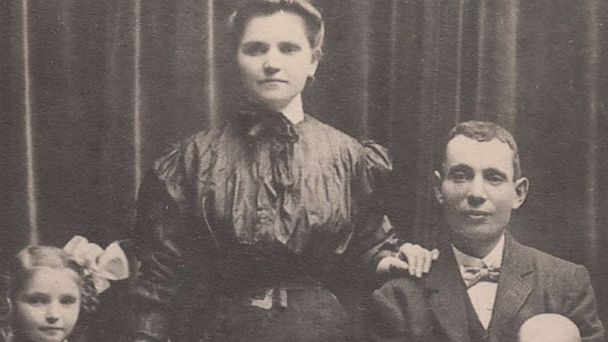Resettlement Programs Give Refugees New Start

Sasha Chanoff
By SASHA CHANOFF:
Four years ago I met a family fleeing Darfur's genocide. The Kabashi family had escaped to the slums of Nairobi, Kenya, and were desperate: Their youngest son had died, their surviving children were traumatized and malnourished, and their oldest daughter, Mona, had been separated from the family during an attack on their village.
Mona was only 5 when her family lost her. Had she survived? Did she manage to dodge the bullets, the bombs, and live through the genocide that had claimed the lives of hundreds of thousands and displaced millions in Darfur since 2003?
ABC World News did a story about how our organization, RefugePoint, helped the family come to the U.S. through United States Refugee Resettlement Program, which resettles tens of thousands of the world's most desperate and endangered refugees each year.
But it was Kristi Maynard, a woman from Martha's Vineyard, who made the biggest difference in their lives. She was so moved when I told her about this family that she immediately sent funds to help them. She also sent a picture of her family - which the Kabashis held onto like a lifeline, knowing they had a friend in America.
The first time Kristi met the Kabashi family in person, she said, "It felt equivalent to when the doctor gave me my son in my arms for the first time."
Kristi shared the family's heartache over the daughter they had lost. I've seen too often that when young refugee girls are separated from their parents, they are easily kidnapped, trafficked, sold into slavery, or killed. This was a needle in a haystack search. Mona's trail was cold, and Darfur continues to erupt in violence.
Last year worldwide conflict and persecution forced about 23,000 persons per day to flee their homes. There are 16 million refugees in the world right now and the average amount of time someone lives as a refugee is 17 years.
Like so many Americans, my own family fled antisemitism in Russia more than 100 years ago and arrived in the U.S. as refugees. After college when I began assisting newly arriving refugees, I was immediately and viscerally struck by the feeling that this was my life's work. After working in the U.S. and across Africa for a number of years, I was inspired to start an organization focused on protecting those refugees who fall through the cracks of humanitarian aid and on finding lasting solutions for them.
It was nothing short of a miracle when the Kabashi family learned from other refugees that Mona was alive. Kristi shared in their joy. She even flew to New York to meet Mona at customs, flying with her to St. Louis - the last leg of her long journey home.
Kristi is an example of an American who is welcoming, who is loving, and who is proud of what we can do as a country to help people who are less fortunate. And she's not alone. I've met hundreds of Americans across the U.S. whose lives are transformed through their relationships with refugees. They become our neighbors, our friends, our fellow tax-paying Americans. They open new and meaningful dimensions in our lives. And they often become the leaders who learn skills in American that help bring peace and development to their war ravaged homes.
Kristi's greatest comfort is knowing that Mona and her siblings will have a safe life and that they can choose their future. Mona has already decided she wants to be a doctor. And now with Kristi, America, and her own family by her side, there's a distinct possibility she will. For the first time in 14 years, her future is wide open.
Sasha Chanoff is the founder of RefugePoint , a nonprofit organization that provides lasting solutions for the world's most vulnerable refugees.